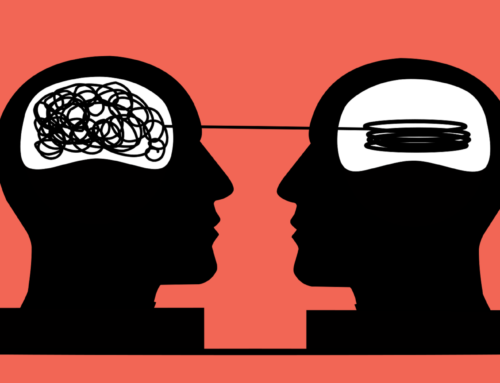You’re always tired, but not sleepy. You find yourself breaking down for no apparent reason while getting ready in the morning. Simple tasks like grocery shopping can suddenly become overwhelming. If you are a person who suffers from anxiety, insomnia or depression, chances are that one of those statements, or maybe all three, resonate with you.
Living and dealing with any of these conditions is not something everyone can understand, as they take a drastic toll on your love, work and social life. Not being able to calm yourself down, get yourself to fall asleep or force yourself to face the day ahead of you are draining and damaging.
While some choose to turn to medication to cope with their illnesses (16.7% of U.S. adults reported filling one or more prescriptions for psychotropic drugs in 2013), others opt for natural remedies and tactics. In the novel Getting Past Anxiety, the main character decides to commit herself to healing her anxiety, but chooses to do so through natural remedies. The book is based on the real-life struggles of its author, Melissa A. Woods, who suffered from anxiety for decades before seeking out a variety of modalities to help herself. As the main character says in the novel, “I really want to understand why I feel this way. I don’t want to mask the symptoms with an antidepressant …”
If you too want to try natural solutions, then here is a list of methods you can use the next time you find yourself wide awake even after taking a sleeping pill, can’t muster the energy to go out with your friends on a Friday night, or are unable to calm your nerves before an upcoming presentation.
15 Tactics to Cope With Anxiety, Insomnia, or Depression:
- Cranial sacral therapy
Cranial sacral therapy is a form of bodywork therapy that focuses on bones in the head, spine and sacrum. It works to release compression in those areas to help decrease stress and pain. This is said to help with mental disorders because it works to alleviate the tension that is stored up in a person’s body when they are traumatized, injured or anxious. - Chakra therapy
This form of therapy is a mode of energy therapy and healing. People believe that at the core of a person’s body are seven wheel-like energy centers that spin, called Chakras. These seven centers can receive, assimilate and transmit energy. Chakras have the ability to receive, assimilate and transmit energy. When one chakra is out of balance, it can affect a person’s emotional, mental and physical health. Chakra therapy works to keep them spinning correctly. - NLP
Neuro-Linguistic Programming is a method of influencing brain behavior (the neuroscience part of the phase) through use of language (the linguistic part) and other types of communication, to enable a person to recode the way the brain responds to stimuli and manifest new and better behaviors. NLP is often incorporated with hypnosis to help achieve the change.
– Kate Durocher
Read More: 15 Tactics to Cope with Anxiety, Insomnia, or Depression







Leave A Comment